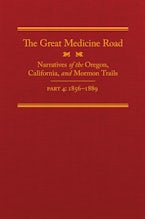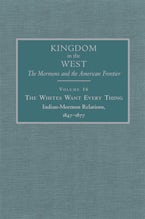- Home
- Race and Culture in the American West Series
- education
- history
- Speaking American
Speaking American
Language Education and Citizenship in Twentieth-Century Los Angeles
Published by: University of Oklahoma Press
Imprint: University of Oklahoma Press
308 Pages | 6 x 9 | 21 b&w illus.
$45.00
$24.95
$21.95
When Lyndon B. Johnson signed the Bilingual Education Act of 1968, language learning became a touchstone in the emerging culture wars. Nowhere was this more apparent than in Los Angeles, where elected officials from both political parties had supported the legislation, and where the most disruptive protests over it occurred. The city, with its diverse population of Latinos and Asian Americans, is the ideal locus for Zevi Gutfreund’s study of how language instruction informed the social construction of American citizenship. Combining the history of language instruction, school desegregation, and civil rights activism as it unfolded in Japanese American and Mexican American communities in L.A., this timely book clarifies the critical and evolving role of language instruction in twentieth-century American politics.
Speaking American reveals how, for generations, language instruction offered a forum for Angelino educators to articulate their responses to policies that racialized access to citizenship—from the “national origins” immigration quotas of the Progressive Era through Congress’s removal of race from these quotas in 1965. Meanwhile, immigrant communities designed language experiments to counter efforts to limit their liberties. Gutfreund’s book is the first to place the experiences of Mexican Americans and Japanese Americans side by side as they navigated debates over Americanization programs, intercultural education, school desegregation, and bilingual education. In the process, the book shows, these language experiments helped Angelino immigrants introduce competing concepts of citizenship that were tied to their actions and deeds rather than to the English language itself.
Complicating the usual top-down approach to the history of racial politics in education, Speaking American recognizes the ways in which immigrant and ethnic activists, as well as white progressives and conservatives, have been deeply invested in controlling public and private aspects of language instruction in Los Angeles. The book brings compelling analytic depth and breadth to its examination of the social and political landscape in a city still at the epicenter of American immigration politics.
Zevi Gutfreund holds a PhD in history from the University of California, Los Angeles, and is Assistant Professor of History at Louisiana State University, Baton Rouge.
"In this illuminating historical account, Zevi Gutfreund posits that formal language education served as a vector through which Angelinos—those who possessed social capital and those who aspired to it—sought to articulate and shape notions of US citizenship in the twentieth century. Gutfreund uncovers the ways teachers, parents, and students challenged Americanization and English-only campaigns and brought to bear their own aspirations for national belonging. Speaking American proves quite salient and timely as California continues to both reify and undermine national xenophobic currents in American immigration politics.”—Clif Stratton, author of Education for Empire: American Schools, Race, and the Paths of Good Citizenship
“Speaking American asks critical questions about identity, Americanization, education, and young people. In telling this complex and important story—difficult, disappointing, and uplifting at the various twists and turns of Los Angeles history—Zevi Gutfreund explores how and why L.A. was at the epicenter of twentieth-century Americanization debates and struggles. He renders the always-complex social and racial arenas of metropolitan L.A. with clarity and scholarly acuity.”—William Deverell, author of Whitewashed Adobe: The Rise of Los Angeles and the Remaking of Its Mexican Past
“Our understanding of American identities and educational reform has broadened significantly in recent years, as scholars have increasingly identified schools as sites of ongoing negotiation between students, teachers, diverse communities, and reformers. In telling the multiple ways in which Angelenos understood what it meant to “speak American,” Gutfreund’s book adds important insight regarding how language remained—and remains—a critical part of this negotiation.”---Western Historical Quarterly
“Speaking American is at once a sweeping look at a century’s history of language education and a highly personalized request. While this is never a direct ask, Zevi Gutfreund persistently urges readers to reconsider their ideas of what constitutes and connects citizenship, place, and language…This is undoubtedly a book about Los Angeles. But perhaps more importantly, Gutfreund captures the ways in which its inhabitants imagine what it means to participate in an “American” life in this place that Louise Pubols insists was “born a global city” at the crossroads of multiple settler colonial empires and persists as such. [Gutfreund’s] work reminds us how the city itself is a living experiment, an unfinished effort in human coexistence.”—California History












